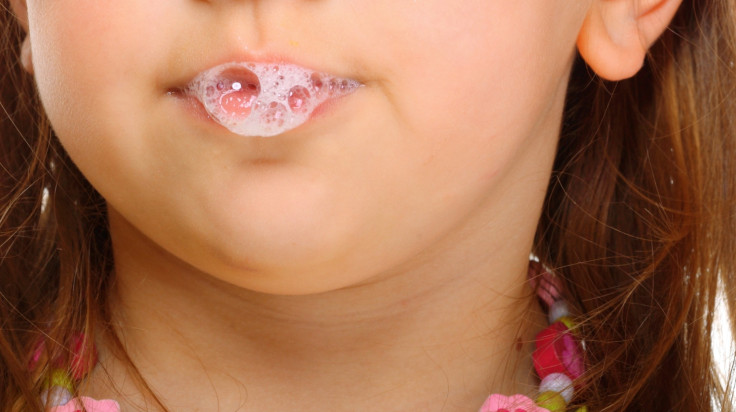Saliva To The Rescue: How It Halts DNA Damage From Tea, Coffee, And Flavor Additives

Toxins called pyrogallol-like polyphenols or PLPs, are capable of seriously damaging DNA. Surprising enough, these toxins are also found in substances many people use every day, such as tea, coffee, and liquid smoke flavoring. No need to panic, however, your body already has a great defense against these harmful chemicals: saliva.
Researchers were baffled as to how people with large amounts of PLPs in their diet were able to walk away unharmed. Last year it was discovered that this plant chemical broke down strands of DNA. In some cases the damage was intense; 20 times greater than the damage that chemotherapy inflicted on cancer patients' DNA, according to the press release. “If these chemicals are so widespread —they're in flavorings, tea, coffee — and they damage DNA to such a high degree, we thought there must be defense mechanisms that protect us on a daily basis from plants we choose to eat," Scott Kern, an investigator from Johns Hopkins who was involved in the study, explained in the press release.
In their study, researchers discovered that man’s greatest line of defense against these damaging chemicals lay in his mouth, more specifically, in the saliva. An enzyme in our saliva called alpha-amylase, the blood protein albumin, and the muscle protein myoglobin, all work hard to protect us from DNA damage caused by PLPs. "It was quite easy to uncover a few of these protective substances against the tested cancer therapeutic drugs, which suggests there may be many more layers of defenses against toxins," Kern added.
Usually the damaged DNA is repaired immediately. According to Cancer Research UK, if the damage occurs in cells involved in cellular growth, the cell can start to multiply out of control. This can lead to cancer.
Chemotherapeutic treatments work by inhibiting fast-diving cells, such as cancer cells, from reproducing. This process also leads to DNA damage in the cells. Unfortunately these saliva enzymes and proteins did not offer the same DNA protection against chemotherapeutic drugs. Based on this fact, the researchers suggest that the natural PLP defenses evolved specifically over time to protect humans from a plant compound commonly found in our diets.
An equally intriguing occurrence observed by the researchers was the ability of cells to eventually build immunity to the toxins after reoccurring exposure. It seems that after time our cells don’t even require the protection offered in saliva and are capable of fending for themselves. "After about two weeks we found it difficult to get the cells to be damaged by the same chemicals, even if they were damaged by the chemicals weeks earlier," Kern explained. "They seem to have some innate ability to respond to the damage or sense it and somehow protect themselves against it, even in the absence of albumin, muscle proteins, or saliva components." This, according to Kern, was a perfect example of how whatever doesn’t kill you makes you stronger.
Source: Hossain MZ, Patel K, Kern S. Salivary α-amylase, serum albumin, and myoglobin protect against DNA-damaging activities of ingested dietary agents in vitro. Food and Chemical Toxicology. 2014
Published by Medicaldaily.com



























